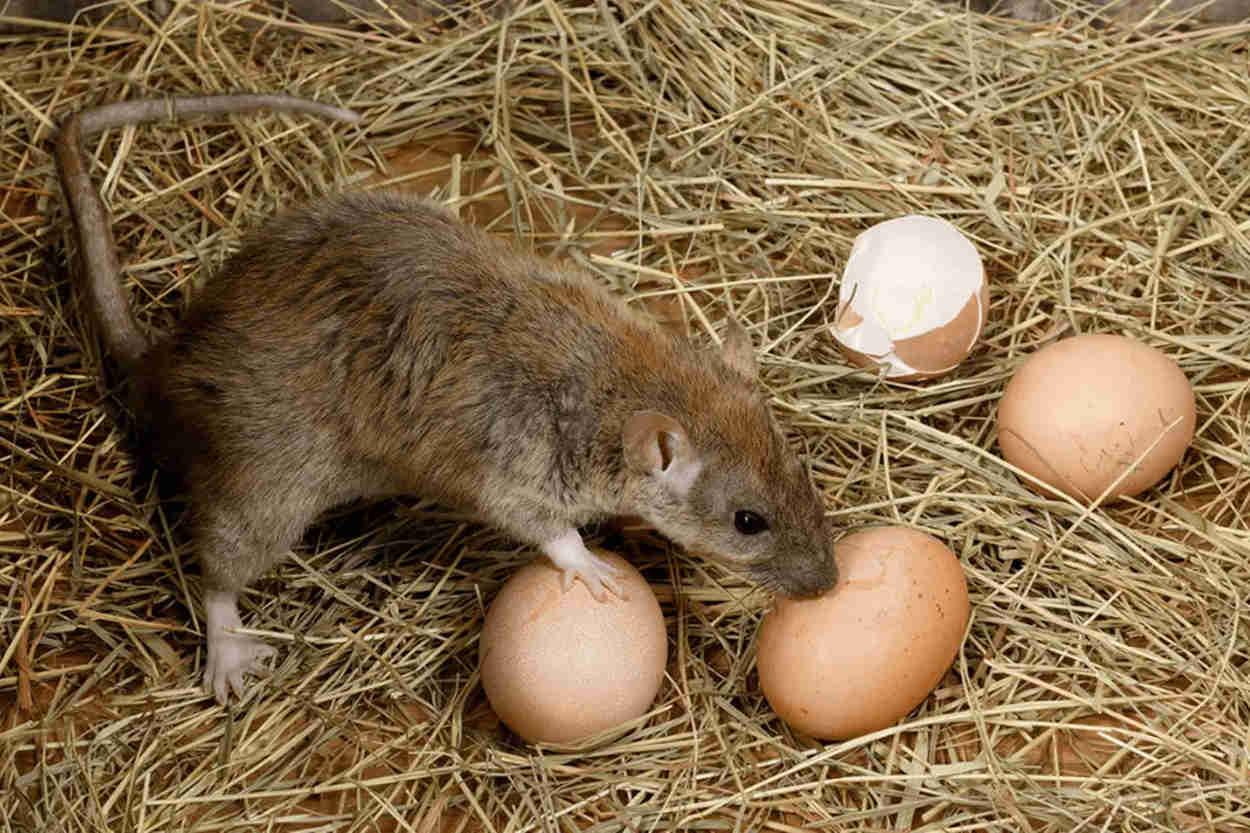Rats, just a mere mention of the animal is enough to startle. And not because the little bugger is a scary monster but because of how invasive the species is. As chicken owners, we don’t want rats anywhere around our birds.
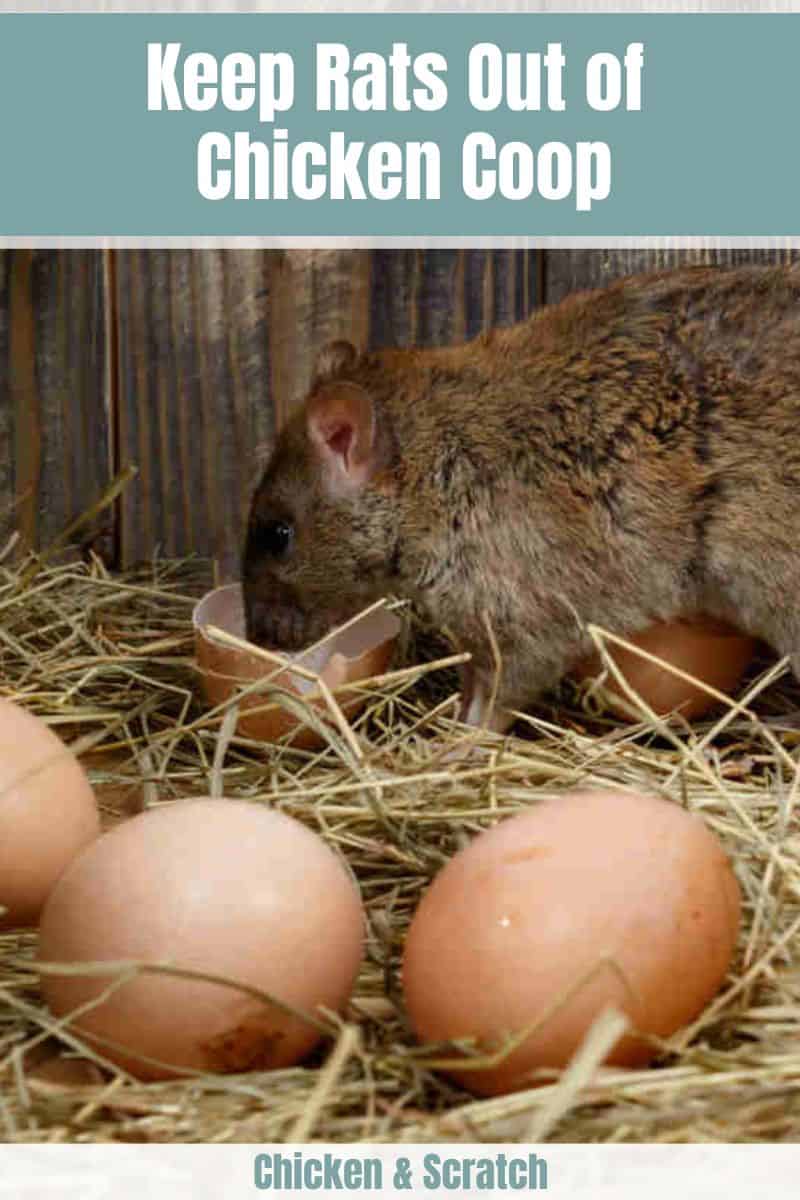
The freeloaders steal our chickens’ food, stress the birds, and lead to diseases like salmonella. Furthermore, they attract other predators like snakes, who have no problem eating our chicks and eggs.
If those are not enough reasons to keep rats off your coop, I don’t know what is. And that neatly brings us to why we are all here. I’m talking about the million-dollar question, how do you keep rats out of your chicken coop?
And we have the best preventative strategies. But before facing any adversary, it’s wise to study them.
Understanding Rat Behavior and Attraction to Chicken Coops
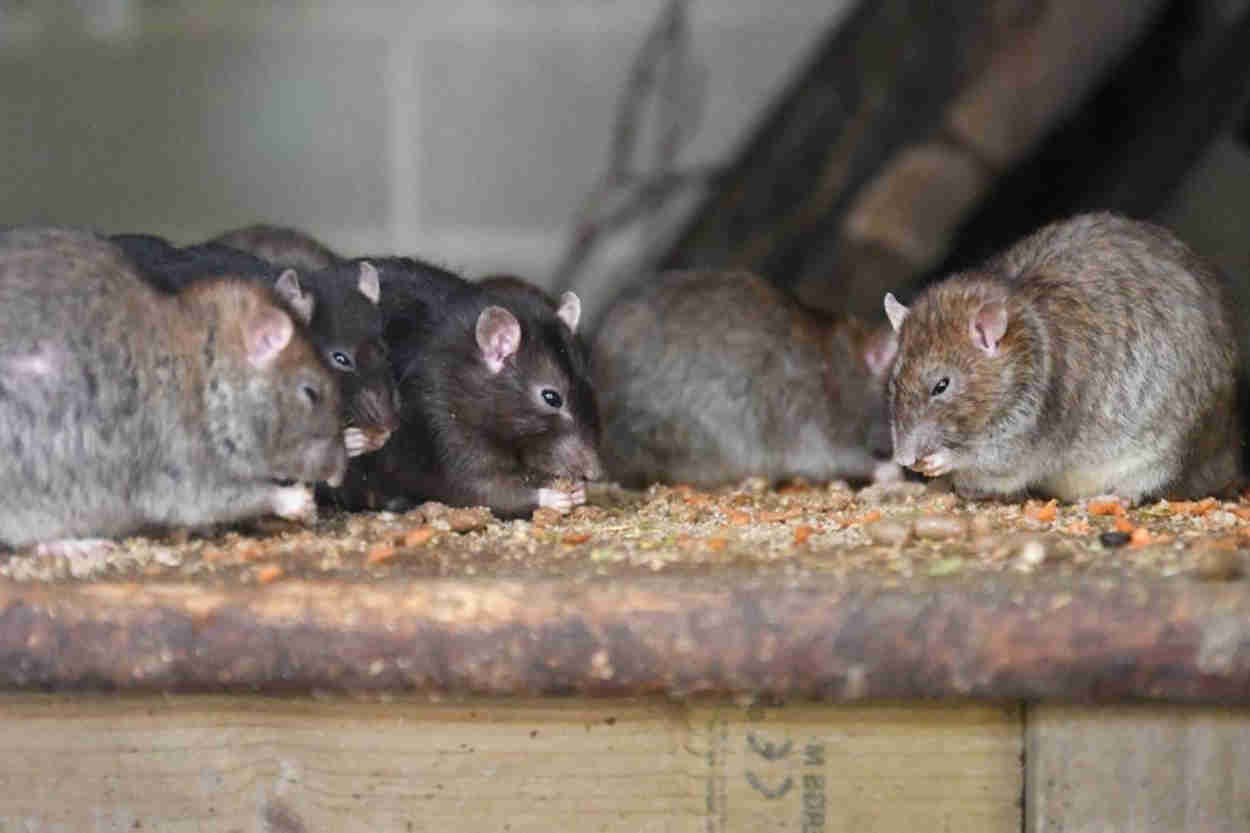
It was Sun Tzu, a Chinese General and the author of “The Art of War,” that said, “Know your enemy.” And these words couldn’t be more relevant to this war you’re about to wage against the pesky rodents we call rats. We need to know how rats move, how they think, and the things that motivate them.
Reasons Rats Are Drawn to Your Chicken Coop
It’s not like your coop has a mat with the words “Welcome” burned into the fabric. Maybe you do, but there must be factors in and around your chicken coop that are attracting rats.
Below are six common reasons why rats flock to your chicken coop:
- Free Food: Rats are scavengers, and nothing summons a scavenger better than free food. Given that most chickens don’t fight back, a visit to the coop is like taking candy from a baby.
- Free Water: All that free food does make a rodent thirsty. They might as well help themselves to some water; the drinkers are unguarded, after all.
- Warmth and Shelter: Rats are always a problem, but infestations grow worse in the winter months. The lack of forage and availability of warmth draw rats to your brooder. Sometimes they get so bold as to cozy up with your chickens.
- Easy Access: Did you know that a rat can fit into any crack, hole, or crevice that is large enough to accommodate its head? Chicken coops have many gaps and spaces, some of which a grown rat can squeeze through.
- Attractive Odor: The smell of chickens, their waste, and feed is attractive to rats. It doesn’t matter where you build your coop; all the neighborhood rats will find it.
- Lack of Predators: A chicken coop with no predators (like owls, foxes, and hawks) is a very attractive proposition to rats. It’s a safer environment for rats to thrive.
Identifying Signs of Rat Infestation
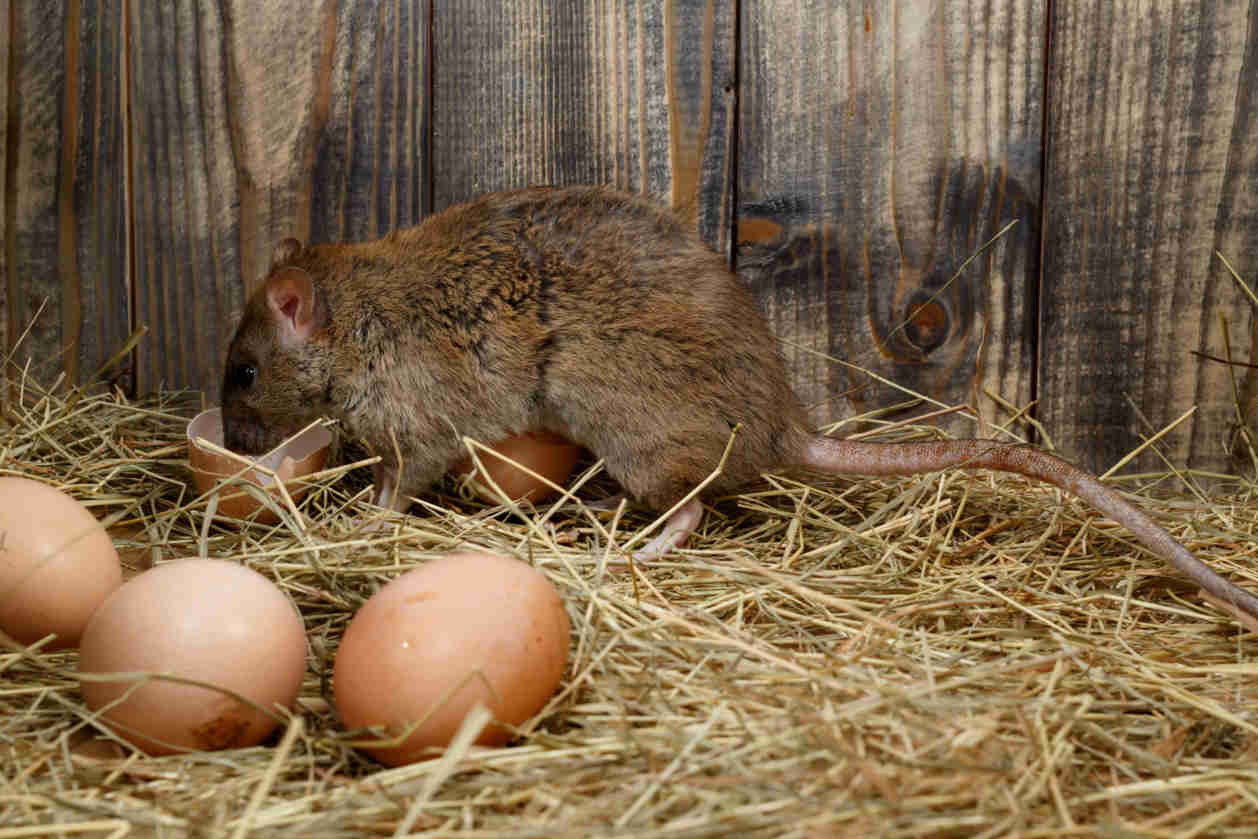
It might seem like the chicken coop is a giant magnet for rats, but how can one determine the presence of a rat problem?
It’s all in the signs, and here are some strong indicators of a rat infestation:
- Presence of rat droppings in and around the coop
- Gnaw marks on coop doors and walls as well as on the chicken feeders
- Nesting material (shredded fabric and paper) in your chicken coop
- Rat tracks and smudges on dusty areas of the coop
- Strong ammonia stench from rat urine
- Broken or out-of-place eggs
- Scratching noises
- Rat sightings
Prevention Strategies
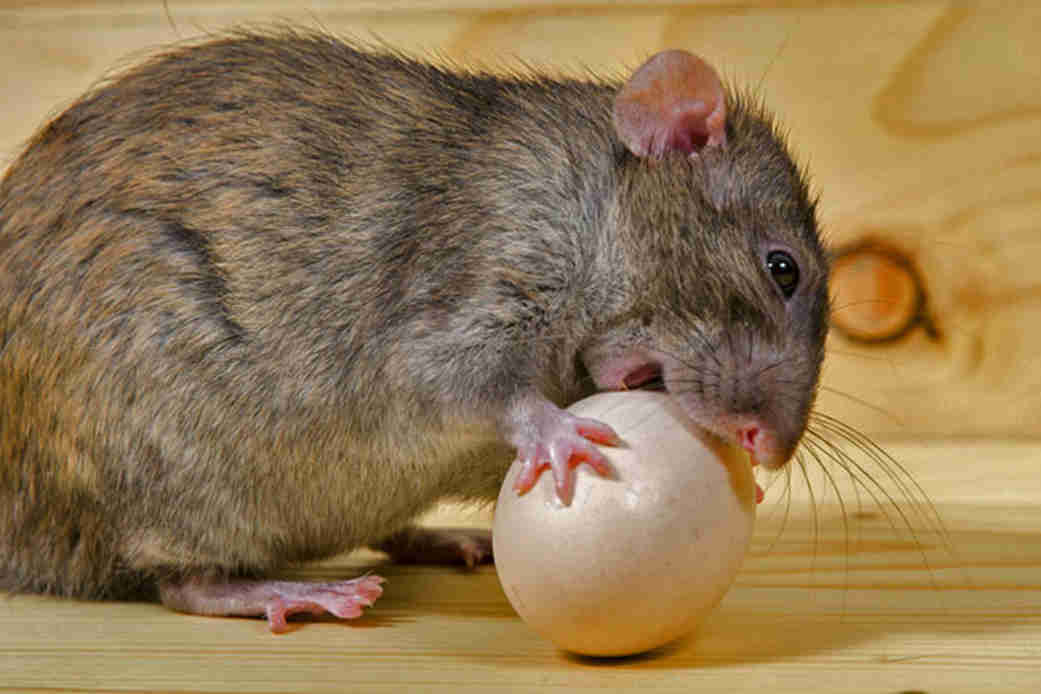
You wouldn’t want to wake up to a coop that’s overrun by rats, would you? The only way to avoid this nightmare is to keep the rats at bay; we have just the preventative strategies for you.
1. Keeping the Coop Clean, Tidy, and Organized
A disorganized coop is a sea of opportunity for a rat. It can nibble on chicken feed scraps that drop on the floor. It can burrow under the bedding, and you’ll still have a hard time seeing the holes because everything is everywhere.
Keeping your coop clean, tidy, and organized takes away these opportunities, making it easier for you to read the signs of a rat infestation. So set up a cleaning schedule and stick to it. Keep your feeders and drinkers organized.
2. Securing the Coop’s Structure
Sometimes the best strategy for keeping rats away from your chicken coop is to keep them away. After all, the coop’s perimeter is the first line of defense. And as I stated earlier, if it’s big enough to fit a rat’s skull, the rodent can squeeze through.
Inspect your coop, and find and fill cracks, gaps, and holes that may serve as entry points into your coop.
3. Implementing Landscaping Tactics
Rats love vegetation cover because they can easily disappear into the woodwork. Take that away, and your yard has a level of exposure no rat is comfortable with. Clear or at least trim the vegetation around your chicken coop.
Rat Deterrents and Natural Repellents
You can also make your chicken coop and its environs less- conducive for rats. If you can’t kick them out, turn up the A/C. Below are creative ways of “turning up the A/C.”
Mechanical Deterrents
Mechanical deterrents will be contraptions of strategies that disrupt the rat’s activity in the coop. They may not kill rats, but they act as a kind reminder for the rodents to find another place to hang out.
Below are some mechanical deterrents that do exactly that:
- Hardware Cloth: You may not be able to seal off your windows and vents, but some heavy-duty hardware cloth will surely keep the rats outside.
- Elevate the Coop: If you’re worried about rats burrowing underneath the fence and emerging in your coop, you should consider lifting your coop.
- Install Rat Guards: If you’re going to elevate your chicken coop, you better install some rat guards on the coop’s stilts. They are metallic cones that discourage rats from climbing into the coop.
- Secure Your Food Storage: Rats can gnaw through bags, but they can’t tear through metal. Always keep your chicken feed in metal drums for short-term and long-term storage.
- Ultrasonic Pest Repellants: This electronic device emits a sound that is way beyond our audible range. We may not hear the sound, but to rats, it’s an unbearable scream.
- Motion-Activated Lights and Alarms: A word of caution; though they may be effective at keeping the pests away, the lights and noise will probably startle and stress your chickens.
Natural Repellents
You can also leverage the power of nature to keep rats away. There are so many plants that rats can’t stand. It’s a pretty clever way of keeping the rodents off your yard. Even Greta Thurnberg will approve of this method; because no toxic chemicals are involved.
Plant these herbs to keep rats away from your chickens:
- Peppermint
- Lavender
- Rosemary
- Bay leaves
- Black pepper
- Eucalyptus
Predator Control as a Preventative Measure
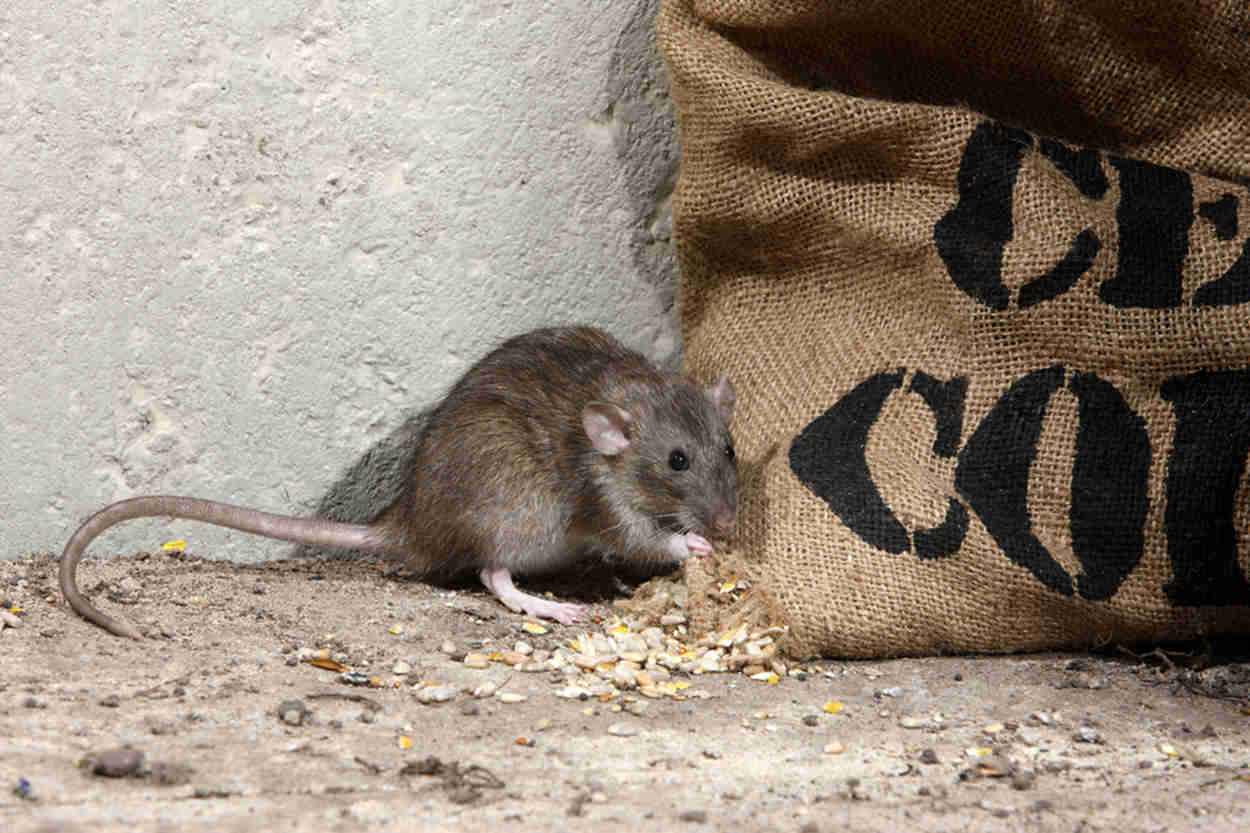
Apart from the free food, rats love chicken coops because it is a predator-free environment. Well, you can change this by introducing certain rat predators.
Introducing Predator Species in the Area
With this strategy, you want predators that will be a threat to the rats and not your chickens or their eggs. Predators that are up to this job include:
- Barn owls
- Hawks
- Falcons
- House cats
- Dogs, especially terriers
Creating a Safe Environment for Predators and Chickens
You may be thinking, “Having predators around defeats the purpose of keeping chickens.” And you’ll be right since any of the predators above will gladly snack on one of your chicks. But you can also create a safe environment for your chickens and the predators while keeping away the rats; win-win-win.
The best way to create a safe environment for your predators and chickens is to keep them away from each other. Fencing your chicken run is an excellent way of protecting your chickens from land-based predators, and installing bird netting will keep the birds of prey away.
Humane Trapping and Removal
Rat traps have been dealing with the rat problem for centuries. The only problem is that it kills the rodents. It would be unfortunate for a poor animal to lose its life because you want it nowhere near your chickens.
Fortunately, there are humane ways of catching a rat without harming it:
Proper Relocation of Captured Rats
The chief reason people hesitate about live rat traps is that they don’t know how to deal with the rodent after capture. You can’t just release it; it will come back to terrorize your chickens; what do you do?
You want to drive the rat to a remote area where there are no houses. You want to transport it while it’s inside its trap. And only when you are away from civilization will you lay down the trap and release it.
Final Thoughts
Rats, nobody likes them, but they are somehow attracted to our chicken coops. It is not ideal to have rats around the chickens because they steal feed and possibly spread diseases. With the tips, hacks, and tricks we’ve shared above, you can keep these pests out of your chicken coop and away from your birds.

Joseph Hudson has been raising chickens for over 15 years. In 2018, he completed the Agriculture & Natural Resources program at Mt. San Antonio College. He currently raises over 1400 chickens on his 7.5-hectare farm. He keeps sharing his experience on raising healthy and happy chickens on Chicken Scratch The Foundry.
